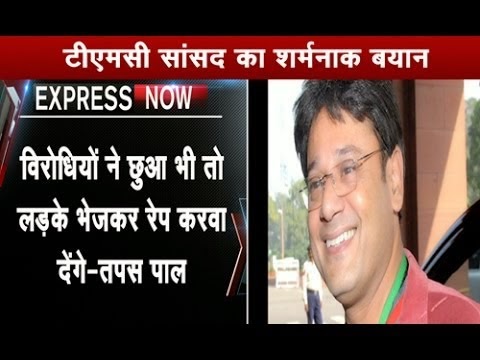Zealand, a group known collectively with the U.S. the “Five Eyes.”
Just an idle fantasy that we have about A.R. and her merry band of storm-troopers (all the rage against the MAN is such a perfect cover), but supposing for a moment that this was true, that she is indeed the Queen Bee in the pay of the USA, it would be so delicious on so many levels.
Thanks to Edward bhai (give him a Bharat Ratna now!!!) we have the list of top ranked enemies of the USA requiring “special observation.” Surprisingly, no Russians and Chinese entities on the list. Instead what we have are a bunch of third-world, ideological organizations with a mass base not fully beholden to the West.
BJP (India), PPP (Pakistan), Hezbollah (Lebanon), Muslim Brotherhood (Egypt), FARC (Colombia)
The FARC are a Violent Non State Actor (VNSA) from Colombia [ref. Wiki], equivalent to the Maoists of India (who are not under supervision…why?).
The Revolutionary Armed Forces of Colombia—People’s Army (Spanish: Fuerzas Armadas Revolucionarias de Colombia—Ejército del Pueblo, FARC–EP and FARC) are an irregular military organization involved in the continuing Colombian armed conflict since 1964.The FARC-EP have a claim to be an army of peasant Marxist–Leninists with a political platform of agrarianism and anti-imperialism. The operations of the FARC–EP are funded by kidnap to ransom, illegal mining, extortion and the production and distribution of illegal drugs.
Also this…if you are keen on spying in Pakistan why bother to focus on the Pakistan People’s Party? Wikileaks show them to be quite harmless and pro-West, no?
That said spying on the BJP (and PPP) seems to be a sheer waste of taxpayers money. We can not speak for Egyptians and Lebanese, but in South Asia there are far more Jaichands and Mirjafars than patriots. Just arrange for a few scholarships, fund a few NGOs and we will happily spill the beans. Also awards are nice, we really dig foreign awards. And remember to invite us to give a few lectures (far cheaper than inviting Hilary).
…….
The Bharatiya Janata Party (BJP) was included in a top-secret list of
six non-U.S. political parties worldwide that the U.S. National Security
Agency (NSA) received official permission to covertly spy upon,
according to the latest trove of data released to the media by NSA
whistleblower Edward Snowden.
The BJP, Indian government and a host of other foreign entities were included within the surveillance list of the NSA
authorised by the FISA Court in 2010 and per U.S. law this
certification was required annually for the Agency to continue such
surveillance every successive year.
spy on the BJP and Indian government in the years following 2010.
Monday, the U.S.’ shadowy Foreign Intelligence Surveillance Act (FISA)
court gave the NSA “broad leeway” in conducting surveillance upon not
only these six political parties but also a list of 193 foreign
governments – including India – and only four countries were off-limits
under this programme.
“no-spying arrangements” with only the U.K., Canada, Australia and New
Zealand, a group known collectively with the U.S. the “Five Eyes.”
court suggests the Agency received “a far more elastic authority than
previously known,” one that reportedly allowed it to intercept through
U.S. companies not just the communications of its overseas targets but
any communications about those targets too.
acknowledge its authenticity, but “stressed the constraints placed on
foreign intelligence-gathering,” including requirements set for the
Agency by the President, the Director of National Intelligence and
various departments through the National Intelligence Priorities
Framework, the Post said.
snoop on the Internet and telephone communications of the World Bank,
United Nations, OPEC, and the European Union.
were Amal of Lebanon, with links to Hezbollah; the Bolivarian
Continental Coordinator of Venezuela, with links to FARC; the Egyptian
Muslim Brotherhood; the Egyptian National Salvation Front; and the
Pakistan People’s Party.
for the American Civil Liberties Union, said, “These documents show both
the potential scope of the government’s surveillance activities and the
exceedingly modest role the court plays in overseeing them.”
……
….
regards

